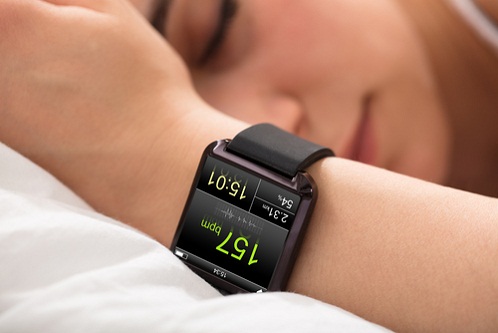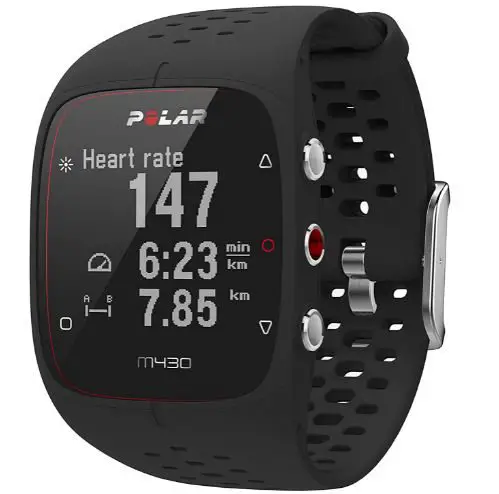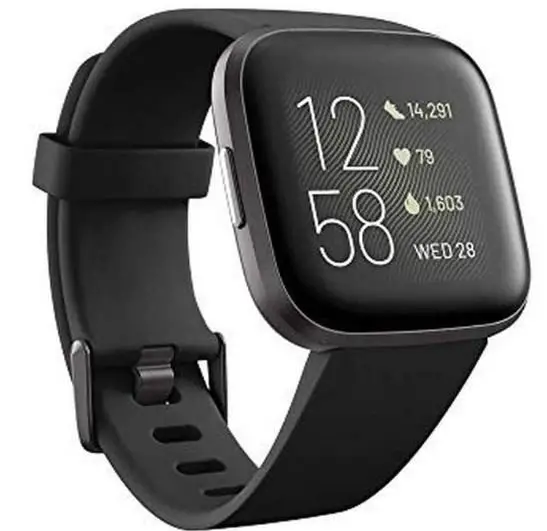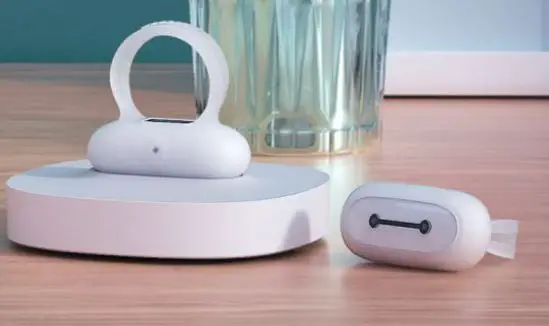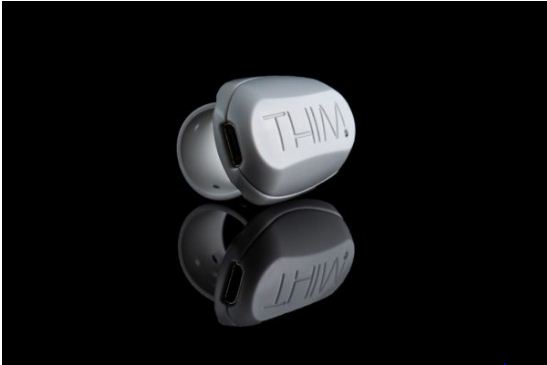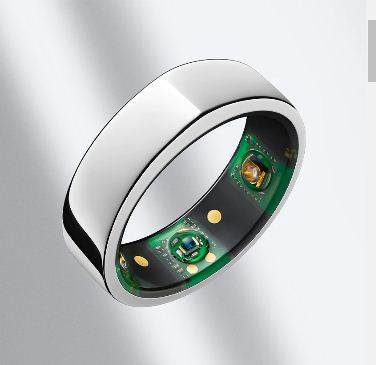Are you considering investing in a sleep tracking device or app?
You've come to the right place!
A sleep tracker can help you quantify and reveal the mysterious one-third of your life you spend a sleep.
Perhaps not accurate like a professional assessment, but sleep trackers can help you determine sleep quality and help you start improving it.
In this guide, we discuss the leading sleep tracking devices and apps, how they work, how reliable they are, and tips for picking the right one for you.
What is a Sleep Tracker?
A sleep tracker is a device or an app that monitors one or more aspects of your sleeping patterns, habits, stages, and quality. This measurement gives you an indirect reflection on how well you slept the night before by using other physical signals of sleep, rather than basing it on eye movement and brain activity.
Sleep trackers help you understand how your sleep stages and quality of sleep change over time. This information is beneficial for identifying potential breathing problems like snoring or obstructive apnea, which could be affecting both the quantity and depth of a person's nighttime repose.
Most wearables use an accelerometer to measure movement-these findings in conjunction with other data points such as heart rate make measuring those all-important hours under the sheets that much more insightful!
Many sleep trackers have a microphone that picks up snoring, movement noise, and ambient noises to judge how well you're sleeping. Some also contain an in-built thermometer that monitors the temperature of your room to provide data on how it may affect your sleep.
Sleep trackers come in two forms: wearables and non-wearables. A wearable device might be worn on the wrist, whereas a non-wearable would rest under or over your mattress.
Even though they may collect different data sets, either type can provide valuable insights into deep sleep patterns as long as it's calibrated correctly.
Wearables are designed with a person's body in mind; they have sensors that monitor heart rate, respiration, and movement more directly because it touches them instead of resting under their mattress as most other wearables do.
Non-wearables typically only measure vibrations which are also valuable information if calibrated well enough!
Once collected, tracking devices typically process data through an algorithm which is then displayed in apps so users can quickly review their history, assess how well they're sleeping, and look for areas of improvement—or even get tips on ways to improve! Some apps may also give suggestions on how to enhance the quality of sleep based on their findings.
Do Sleep Trackers Really Work?
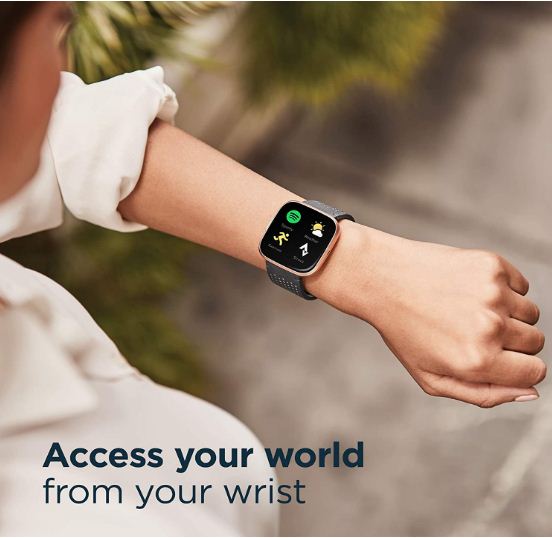
Many scientific studies have been done to see if sleep trackers work as claimed.
Technically speaking, sleep trackers monitor your brain waves, heart rate, and other biometric data related to a pre-designed sleeping pattern chart.
People use the chart to look into their sleep patterns so they know how much time is spent in deep or REM-filled (rapid eye movement) restful states during the night's hours.
Studies show that some tracking devices and apps do help people understand what their body needs while asleep and if/when they need tracker help with timing sleep and naps throughout the day.
Despite their accuracy, however, sleep trackers still rely on prediction models to make assessments.
They are not always 100% accurate- but they provide valuable insight to improve your sleep.
In short, more research is needed, but so far, the research we do have is promising. For example, some data suggest that multi-sensor trackers can provide insight that is nearly the same as PSG tests.
Why Should I Track My Sleep?
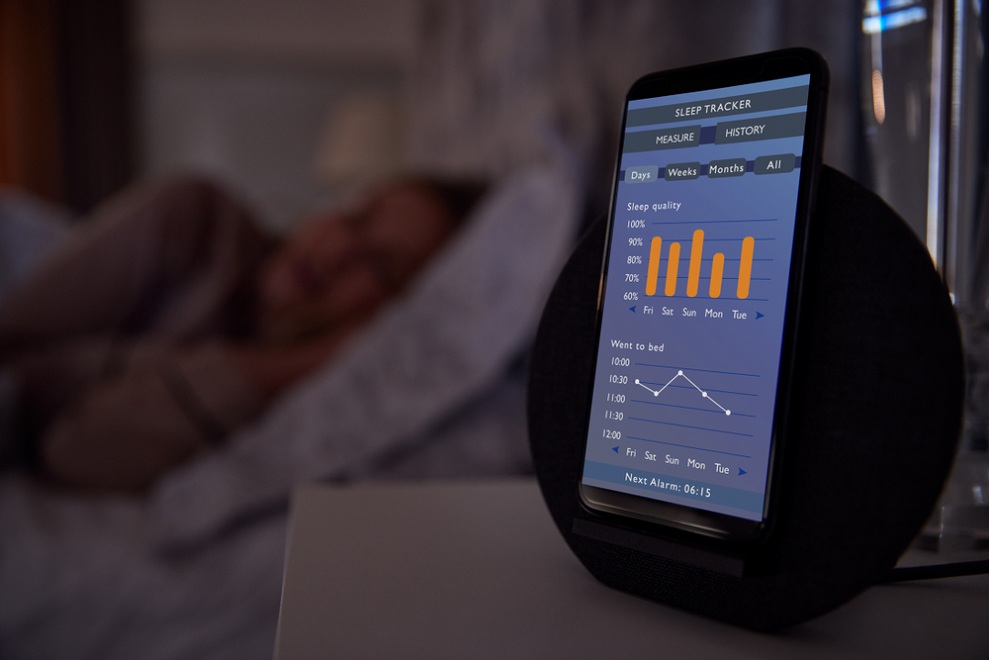
If you want to improve your quality of sleep, then tracking your sleep might be the answer.
In short, tracking your sleep will help you:
- Get more sleep
- Improve your sleep quality
- Understand what causes poor sleep
- Wake up rested
If you do not monitor your sleep using data, then you cannot know when an improvement is needed, nor how a new behavior such as weight loss or more exercise is changing your sleep pattern.
How to Choose a Sleep Tracker
With so many different kinds of sleep trackers on the market, deciding which one is right for you can be challenging. To make it easier to choose between them all, we've compiled a list of features for each significant type of tracker, what they track, how accurate their readings are – as well as any potential drawbacks.
What to Consider When Selecting a Sleep Tracker
Data Collected: Sleep trackers collect a wealth of data that may include heart rate, respiration, and snoring. Some also monitor room temperature, humidity, and noise level, while others collect information about time awake or sleeping.
The best sleep tracker for you is the one that captures the metrics most important to your lifestyle, so read product details carefully to help you find just what suits your needs!
Sleep Analytics: Sleep analytics compares the data collected from the device to scientifically proven patterns to help you diagnose your sleep quality.
To do this, they provide charts showing you how your sleep has changed over time, explain how factors are linked, and calculate a daily sleep score to simplify measuring your progress.
Value: Sleep trackers can be an excellent investment, but do not just buy the first one you find to save money. A sleep tracker's worth is determined by more than its price-point; it also depends on features, comfort, and how it affects your life.
For example, an expensive sleep tracker that provides helpful insight into improving your sleeping habits may be better value for money than a less pricey option with limited information, which could lead people astray when making decisions involving their wellbeing.
When assessing prices, shoppers should take monthly costs into account, too – some come free of charge as part of app packages while others require payment after purchase each month.
Smart Alarm: Waking from deep sleep is more difficult than waking from light sleep. Smart alarms help you set a designated window during which you need to wake up. The tracker analyzes your sleep and assesses when you're sleeping lightly to wake you at the right moment.
Comfort: For most sleepers, comfort is paramount. Comfort also applies to wearables since they make contact with your skin. So pay close attention to fit.
Devices that go on or under the mattress are typically relatively thin, so you're unlikely to feel them. That said, if you're prone to detecting the smallest lump in your mattress pad, then you may want to consider only rings and wearables.
Battery Life: Choosing the right device for sleep tracking can depend on how long it lasts between charges.
If you plan to wear your tracker around the clock, then battery life is essential; most devices last at least through a night of sleep and some even longer, but this will vary depending on the model.
Display & Apps: Most sleep trackers use a smartphone app to analyze and display the sensor data they collect. So make sure your phone is compatible with the app.
Additionally, look at reviews in stores or online before making your purchase decision on whether this is something for you.
Other Features: Sleep trackers often offer many additional features, including GPS, coaching, fitness tracking, and integrations with other apps. These components can make your device more versatile or insightful but also increase the price point.
Which Kind of Sleep Tracker Is Best for Me?
![]()
It is essential to select a device that fits your unique needs and willingness to use data in a disciplined way. The type of tracker you choose will make all the difference in how well-rested and refreshed you feel when waking each morning.
Sleep Tracking Watches
The easiest way to track your sleep is with a watch-like device. You can choose from two types, smartwatches, and wristbands.
Smartwatches are more complex than standard watches. They have many features like notifications and alerts, checking apps, placing calls, and fitness- and time-tracking capabilities.
Some of the biosensors included with the latest smartwatches like Apple's can collect additional health data to provide even more insight.
How Do Smartwatches Track Sleep?
Smartwatches are the latest in wearable technology, but they have some limitations in tracking sleep quality.
That said, smartwatch sensors and fitness algorithms provide a lot of information about your nighttime habits that can help.
More advanced fitness tracking devices such as the Fitbit Charge 2 track respiration, snoring, and room temperature can help you know what is happening with your body each night.
Products To Consider
1. Polar M430
The Polar M430 is a stylish device that fits on your wrist and shows the time. There's also a built-in accelerometer to detect motion, which can help determine when the user has fallen asleep based on their movement.
The sleep Plus technology analyzes sleep habits, duration, and quality, so you visualize what kind of experience you've been getting to optimize it for yourself best.
The Polar M430 comes in small, medium, and large sizes and is available in black and white. Polar offers a 2-year warranty.
2. Lintelek
The Lintelek Fitness Tracker is a wearable that provides many features at a reasonable price point. In addition to reliable data on sleeping, this device measures heart rates and tracks exercise, making it the perfect option for athletes and shoppers looking for versatility in their fitness tracking accessory. The band comes in 14 colors (including rose gold!) and can fit wrists of different sizes!
This water-resistant gadget also features incoming call or message vibration, and the screen can display certain types of notifications.
3. Fitbit Versa
Fitbit is the most popular brand of wearable fitness trackers in the market. The Fitbit Versa combines health tracking and smartwatch features for convenient everyday use.
This device tracks your sleep patterns to analyze your sleep duration, wake cycle, and hectic time. The Fitbit Versa comes with 6-day battery life, but this also depends on the usage.
The Fitbit Versa is a sleek, feature-packed device that tracks your fitness and sleep trends while still providing ample opportunities to stay connected with others.
Sleep Tracking Rings
Sleep tracking rings monitor the quality of one's sleep by monitoring your pulse and oxygen levels throughout the night. They can also detect how often you wake up at night or snore during REM cycles.
How Do Smart Rings work?
A Smart Ring is a light and comfortable device worn on a single finger 24/7. The smart ring's form factor will not disturb you as it monitors your heart rate, SPO2 levels, and EDA – data used in many wellness applications, including sleep tracking.
Products To Consider
1. GO2SLEEP
GO2SLEEP Ring provides detailed information about your sleep quality, helps you monitor and control sleep apnea, and provides advice on getting better sleep.
This smart ring works with its companion mobile app, the SLEEP ON APP, which you can use to analyze your sleep quality. The app monitors your blood-oxygen level, heart rate, Apnea-Hypopnea Index (AHI), rate of how much you toss and turn.
You can see customized sleep advice on the SLEEP ON APP, too. This Smart Ring also generates smart alerts – for example, if your blood oxygen level drops due to bad posture or snoring, GO2SLEEP can alert you and capture the event.
2. THIM SMART RING
The THIM Smart Ring relies on techniques used by leading sleep clinics across the world. When it's time to go to bed, just put on the ring and fall asleep.
The THIM Ring tracks your sleeping patterns based on movement. It recognizes the moment you fall asleep and sends a small soft vibration to wake you up.
The sleep trials are activated during the first 60 minutes of bedtime and tracks how long it takes for users to get back into sleep. As sleep drive increases over time, users can begin to fall asleep quicker.
3. OURA RING
The Oura ring is a smart product designed to improve your physical and mental health through better, more restorative sleep. It helps you match your sleep patterns to your unique circadian rhythm, the 24-hour cycle that sets a natural pace for mind and body.
The Oura tracks your respiratory rate, heart rate, body temperature – and even hands and finger movements.
Other Types of Wearables:
While rings, watches, and wrist trackers are the most common types of wearable sleep trackers, other options exist. These include eye masks and headbands, some of which feature advanced technology not found in other wearables, such as monitoring brain activity or eye movements.
Under-Mattress Sleep Trackers
The under-mattress sleep trackers are placed under your mattress and infer sleep data from motion and vibration.
These devices are typically thin and unobtrusive, making them an excellent choice for people who want to monitor their sleep without wearing a device.
Most under-mattress sleep trackers will work with most mattresses sold today; however, they may not work if you have an exceptionally thick mattress or a waterbed.
Products To Consider
1. Tempur-Pedic SleepTracker
The Tempur-Pedic Sleeptracker is a tracking device that goes under your mattress and syncs with its corresponding app.
It also analyzes your bedroom environment along with typical metrics like sleep quality, sleep stages, and duration. The sensor measures the humidity, air purity, CO2 levels, and temperature around your bed.
The Sleeptracker works with any mattress brand, and It's compatible with Android, Google Home devices, Apple, and Amazon Alexa.
2. Withings Sleep
The Withings Sleep is a sleep monitor that can measure the quality and duration of your sleep. It monitors heart rate, breathing patterns, snoring volume, and movement to determine how you slept last night to provide valuable insights.
The Withings Sleep also monitors your sleeping habits, giving insight into what kind of sleeper you are.
The device interacts with the corresponding app via Wi-Fi, and it automatically syncs to the app to send data when you get out of bed in the morning.
The Withings Sleep is compatible with almost all mattresses, including innerspring, foam, and latex. It comes with a 1-year warranty.
3. Beautyrest Sleeptracker Monitor
Like the Tempur-Pedic Sleeptracker, the one from Beautyrest also works with any mattress brand or type. It works well with Alexa.
It also comes with an alarm that sends you the alerts at the optimal wake-up time. Additionally, it uses the data collected via the Sleeptracker app to give personalized tips to improve sleep quality.
Sleep Tracking Apps
The Sleep-tracking apps promise to help you understand when you cross the threshold between waking and sleeping.
For people who want an uncomplicated interface with a simplistic design, we recommend SleepScore for iPhones. Another good choice is Sleep Cycle.
Sleep Cycle
Sleep Cycle is a sleep tracking app that helps you understand your patterns of sleeping and waking.
It does this by calculating how long you were in each stage of sleep, such as REM or deep-sleep mode, measuring the intensity levels related to these stages: light, medium, heavy.
What we like most about Sleep Cycle are the clean interface and graphs that users can easily see their sleep patterns.
SleepScore
SleepScore is an app for your iPhone or Android phone that will help you improve your sleep.
The free version provides general advice and a record of seven days' worth of data, but the premium plans can track accurate information about how well you're sleeping with in-depth details like when during the night you are more likely to wake up.
It also includes smart alarms that slowly increase volume while playing soothing music instead of loud beeping sounds, which keep people from feeling groggy after waking up.
Sleep Genius
Sleep Genius is the most advanced sleep tracker available. In fact, it's used by NASA to help astronauts sleep better in space!
This app doesn't just track your sleeping patterns with advanced metrics and graphs–it also helps you fall asleep faster with its “genius” relaxation programs that use clinically tested sounds to lull you into a deep slumber quickly.
When the time comes for waking up, Sleep Genie does so by using an alarm clock unlike any other: one which combines neurosensory algorithms (to stimulate certain areas of the brain), binaural beats (to keep rhythms consistent), and more, all while retraining your brain from learning how to wake refreshed; truly genius indeed!
Affiliate Disclosure
Affiliate Disclosure: I may earn a small commission (at no cost to you) if you purchase a mattress after clicking a referral link or using a coupon code on this site. That said, all content and opinions on this site are my own and are NOT affected by these payments.
This site participates in the Amazon Services LLC Associates Program, an affiliate advertising program designed to provide a means for sites to earn advertising fees by advertising and linking to Amazon.com.
*Amazon and the Amazon logo are trademarks of Amazon.com, Inc, or its affiliates.

